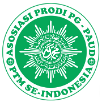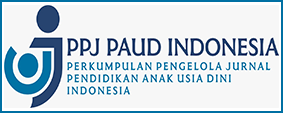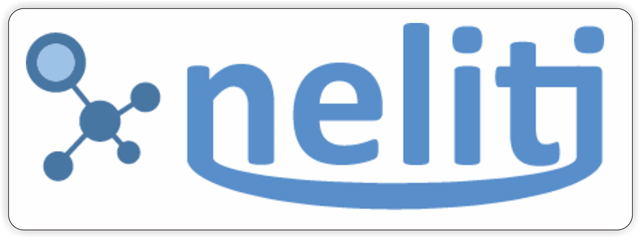Exploring Parents’ Perceptions of Early Literacy Development in Early Childhood Education
(1) Universitas Islam Internasional Indonesia, Indonesia
(2) Universitas Islam Internasional Indonesia, Indonesia
(3) Universitas Indrapasta PGRI, Indonesia
(*) Corresponding Author
DOI: https://doi.org/10.26858/tematik.v10i1.59593
Abstract
This study explores early literacy concepts for young children among parents in low-class communities. It focuses on parents’ interpretations of their children’s development in early literacy and how these influence due to their children’s education. The aim of the research is to illuminate parents’ interpretations regarding early literacy in their children’s education. Through the classical phenomenological approach, seven mothers were interviewed, and the collected data was analyzed using Colaizzi’s method to describe the themes. The findings reveal that they perceived early literacy as an ability to read and write that children must achieve before they are seven years old. They also mentioned it for fulfilling entry requirements for the primary level, avoiding negative stigma from other parents, labeling smart children, and parents’ anxiety for children’s confidence in the future. As a consequence, it allows parents to have reading class preparation, over-involvement in children’s learning activities, providing learning posters, and parents’ home teaching. This study also discussed the concept of early literacy based on human development theories and how it can contribute to sustaining and empowering parents dealing with meaningful learning in cultivating literacy for children in the perception year.
Keywords
Full Text:
PDFReferences
Aamodt, S., & Wang, S. (2011). Welcome to Your Child’s Brain. Oneworld Publications.
Bowey, J. A. (1995). Socio-Economic Status Differences In Preschool Phonological Sensitivity And First-Grade Reading Achievement. Journal of Educational Psychology, 87(3), 476–487. https://doi.org/10.1037/0022-0663.87.3.476
Clark, B. A. (2020). First-and Second-Language Acquisition in Early Childhood. Issues in Early Childhood Education: Curriculum, Teacher Education, & Dissemination of Information. https://doi.org/PS 030 759
Creswell, J. W., & Creswell, J. D. (2017). Research design: Qualitative, Quantitative, and Mixed Methods Approaches. Sage publications.
Cunningham, A. E., & Stanovich, K. E. (1997). Early Reading Acquisition And Its Relation To Reading Experience And Ability 10 Years Later. Developmental Psychology, 33(6), 934–945. https://doi.org/10.1037/0012-1649.33.6.934
Davis-Kean, P. E. (2005). The Influence Of Parent Education and Family Income on Child Achievement : The Indirect Role of Parental Expectations and the Home Environment. Journal of Family Psychology, 19(2), 294–304. https://doi.org/10.1037/0893-3200.19.2.294
Díaz, C., Acuña, N., Ravanal, B., & Riffo, I. (2020). Unraveling Parents’perceptions Of English Language Learning. Humanities and Social Sciences Reviews, 8(2), 193–204. https://doi.org/10.18510/hssr.2020.8223
Garton, S., & Copland, F. (Eds.). (2018). The Routledge handbook of teaching English to young learners. Routledge.
Husnaini, N. (2018). Identifikasi Pola Pengenalan Literasi Pada Anak Usia Dini Di Kota Mataram. Jurnal Pendidikan Anak, 7(1), 30–39. https://doi.org/10.21831/jpa.v7i1.24443
Inten, D. N. (2017). Peran Keluarga Dalam Menanamkan Literasi Dini Pada Anak. Golden Age: Jurnal Pendidikan Anak Usia Dini, 1. https://doi.org/10.29313/ga.v1i1.2689
Iriani, D. H., Syahdan, S., & Nuriadi, N. (2018). The effect of early English learning on psychology. International Journal of Social Sciences and Humanities, 2(1), 65–74. https://doi.org/10.29332/ijssh.v2n1.82
Johnson, R. B., & Christensen, L. (2021). Educational Research: Quantitative, Qualitative, and Mixed Approaches. In Sage publications.
Kurnia, R. R., T., & Putra, Z. H. (2022). Implementation Of Early Literacy Activities During Covid-19: A Parents Involvement Analysis. International Journal of Instruction, 15(2), 831–846. https://doi.org/10.29333/iji.2022.15245a
Lennox, S. (2013). Interactive Read-Alouds—An Avenue for Enhancing Children’s Language for Thinking and Understanding: A Review of Recent Research. Early Childhood Education Journal, 41, 381–389. https://doi.org/10.1007/s10643-013-0578-5
Li, L., & Doyle, A. (2022). Contextual Support in the Home for Children’s Early Literacy Development. Berkeley Review of Education, 11(1), 41–73. https://doi.org/10.5070/b811145300
Lonigan, C. J., & Shanahan, T. (2009). Developing Early Literacy: Report of the National Early Literacy Panel. Executive Summary. A Scientific Synthesis of Early Literacy Development and Implications for Intervention. National Institute for Literacy.
Lonigan, C. J., Shanahan, T., & Cunningham, A. (2008). Impact of shared reading interventions on young children’s early literacy skills. In National Center for Family Literacy (Eds.), Developing early literacy: Report of the national early literacy panel (pp. 153–171). National Center for Family Literacy.
McDevitt, T. M., & Ormrod, J. E. (2011). Child Development and Education (7th ed) (7th ed.). Pearson New International Edition.
Piaget, J. (1976). Piaget’s Theory. Springer. P.
Praveena, K. R., & Sasikumar, S. (2021). Application of Colaizzi’s Method of Data Analysis in Phenomenological Research. Medico Legal Update, 21(2), 914–918,. https://doi.org/10.37506/mlu.v21i2.2800
Rosepti, P. (2022). The Complexities of the Mother’s Role in Providing Early Childhood Learning Experiences for Children with Developmental Delays. Muslim Education Review, 1(2), 257–277. https://doi.org/10.56529/mer.v1i2.80
Santrock, J. W. (2017). Life-Span Development (18th ed) (18th ed.). McGraw-Hill.
Setyawan, D., & Gusdian, R. I. (2020). Penguatan Habitus Literasi: Sebuah Cara Pendampingan Tim Literasi Sekolah (TLS). E-Dimas: Jurnal Pengabdian Kepada Masyarakat, 11(3), 299–306. https://doi.org/10.26877/e-dimas.v11i3.4263
Snow, C. E., & Matthews, T. J. (2016). Reading And Language In The Early Grades. The Future of Children, 26(2), 57–74. https://doi.org/10.1353/foc.2016.0012
Solichah, N., Solehah, H. Y., & Hikam, R. (2022). Persepsi Serta Peran Orang Tua Dan Guru Terhadap Pentingnya Stimulasi Literasi Pada Anak Usia Dini. Obsesi: Jurnal Pendidikan Anak Usia Dini, 6(5), 3931–3943. https://doi.org/10.31004/obsesi.v6i5.2453
Wahyuni, A., Utami, A. R., & Education, E. (2021). The Use of Youtube Video in Encouraging Speaking Skill. Jurnal Pustaka Ilmu, 7(3), 1–9.
Article Metrics
Abstract view : 42 times | PDF view : 15 timesRefbacks
- There are currently no refbacks.
Copyright (c) 2024 Popi Rosepti; Catur Niasari; Rosmita Chaerunnisa

This work is licensed under a Creative Commons Attribution-NonCommercial 4.0 International License.
Published by:
Program Studi Pendidikan Guru Pendidikan Anak Usia Dini, Fakultas Ilmu Pendidikan, Universitas Negeri Makassar
Kerjasama:
Support by:
Email: [email protected]
p-ISSN: 2476 - 9363
e-ISSN: 2723 - 7613

TEMATIK: Jurnal Pemikiran dan Penelitian Pendidikan Anak Usia Dini is licensed under a Creative Commons Attribution-NonCommercial 4.0 International License.
View My Stats


























